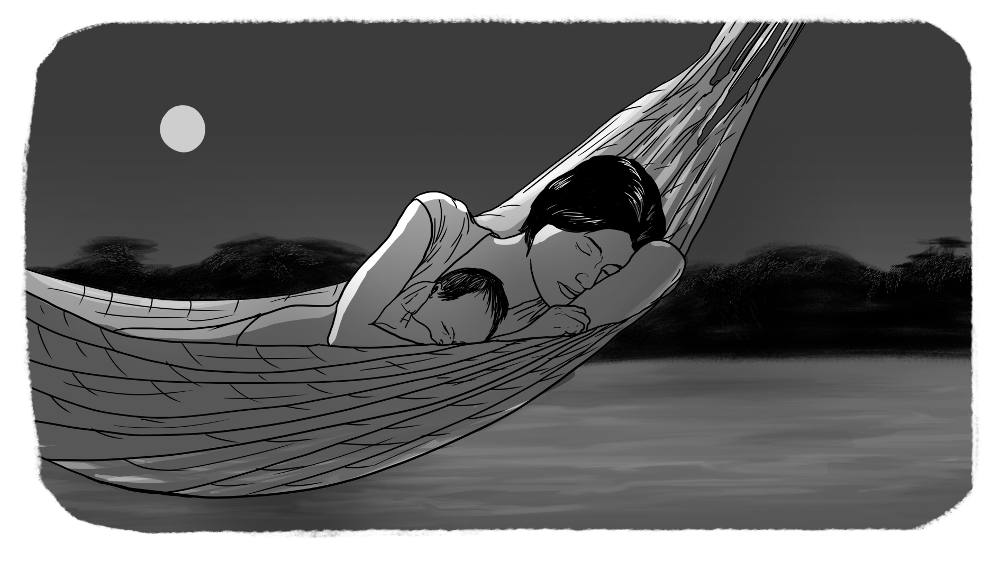Weaving hammocks is of great importance to my community. It is something we do collectively to come together and tell the dreams we’ve just had as the sun grows above the horizon. As we share our dreams, we weave, plan our day, and designate our daily chores, since our dreams have an influence over our actions.
Our grandparents have always taught us to pay close attention to our dreams: Through them, we can speak to our ancestors, the spirits that guide us and send us messages, signs and advice. By sharing our dreams with our families, we have the opportunity to interpret them with the help of our elders. They know that if you dream that you were bit by a snake, you’ll soon receive some bad news. On the other hand, they say that if a single woman is trapped by an anaconda during a dream, she will soon marry.
Time has passed. These days I am a grown woman and I observe with worry the situation my Siona people find themselves in. These days, I see how our youth are leaving our traditions behind, thinking that western culture can offer them more. I see how the ties that bind us are disappearing little by little, since we don’t come together in the early mornings to start our days together. I see how our sacred knowledge is leaving with our grandparents as they pass away. Because of all these reasons, we have decided to take action.
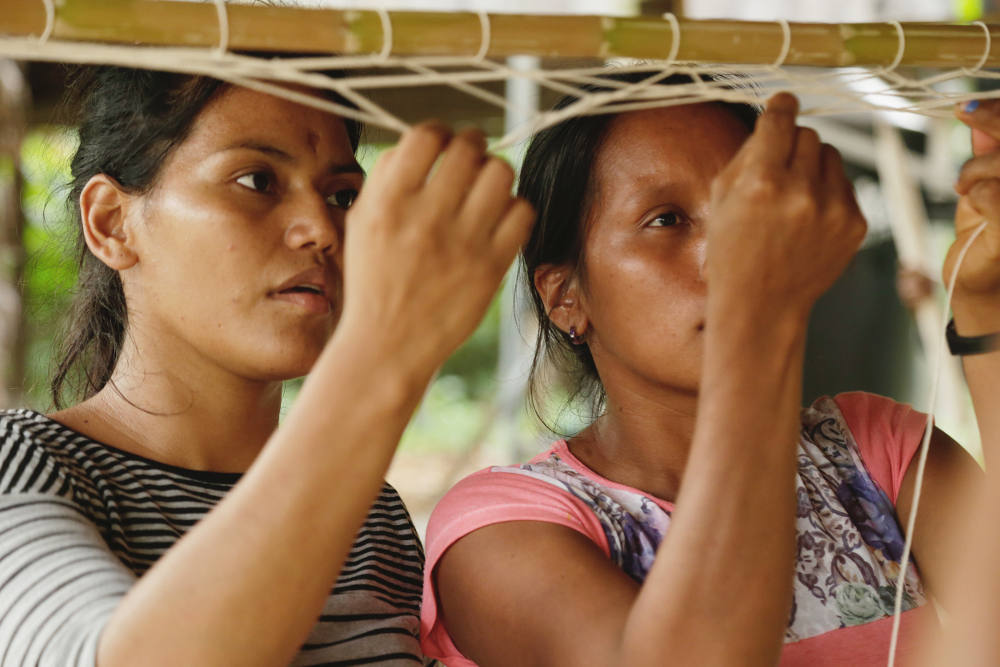
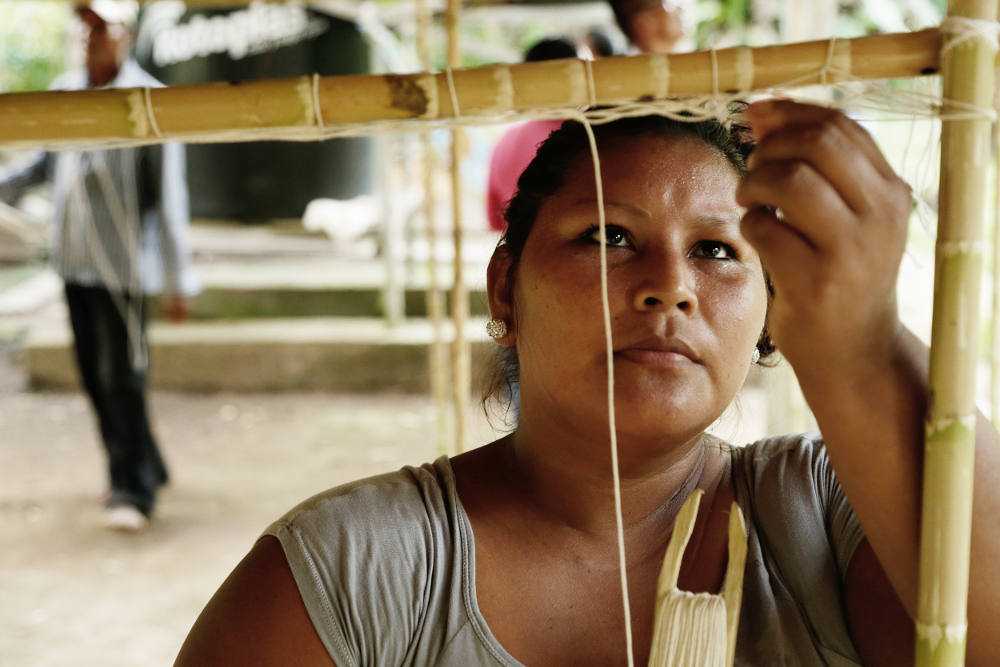
The work we’ve been doing with the support of the Ceibo Alliance in terms of logistics and capacity-building has allowed us women to get together and identify our needs, as well as new initiatives we could develop in order to bring our traditions back to life. That is how we identified two issues we wanted to organize capacity-building workshops around: traditional Siona food, and the manufacture of hammocks.
Women from different nationalities and communities came to the workshops, bringing their products with them. Between all of us, we shared experiences, knowledge, traditions and techniques. The workshops were spaces for learning and for strengthening the bond between women, recognizing this as a common struggle.
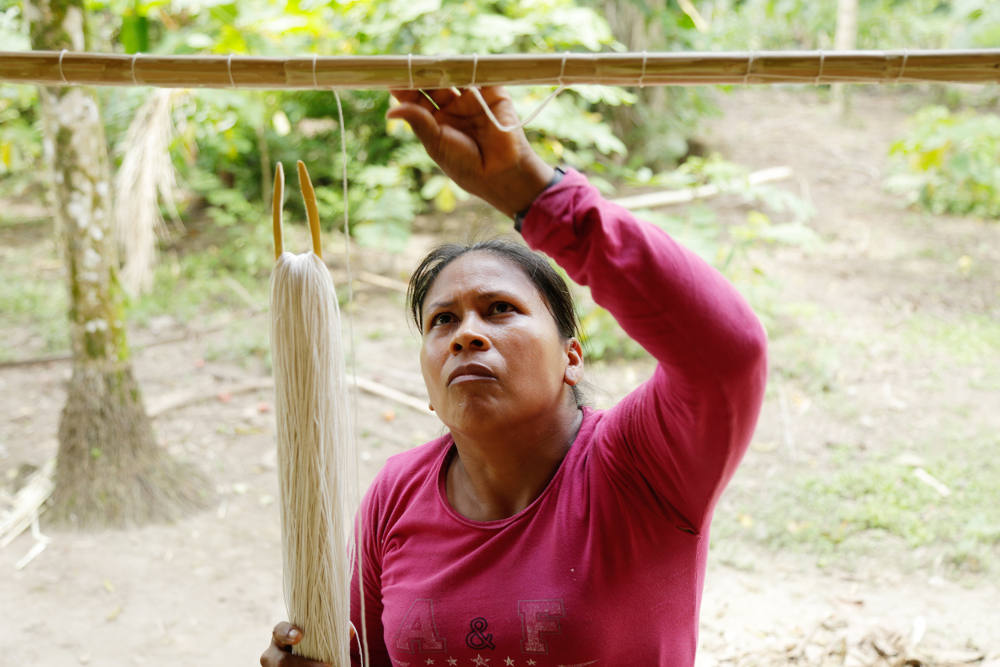
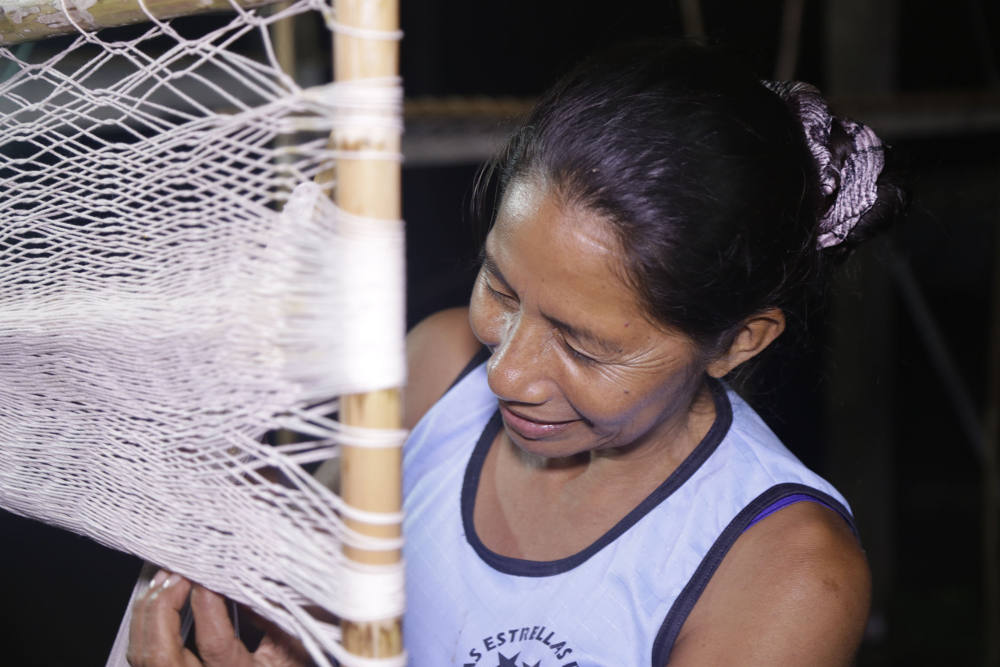
While there are many different ways of weaving, talking, and living, here in the Amazon and among the different nationalities that exist here, everyone comes from the same branch: We have the same blood, we are sisters and brothers. Learning techniques from other nationalities does not mean that we leave our own ways of doing things behind, but that we value the singular qualities of each community. Within those differences, we find a way of recognizing ourselve as Siona people.
We will continue to fight so we can keep weaving. Because the hammocks in which we sleep and dream every night, also wrap us with the dreams of our ancestors, reflecting the history of the Siona people. That’s how it is.
With the participation of Alicia Salazar and Bertha Grefa.
